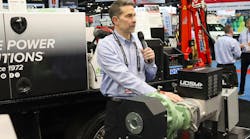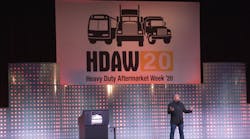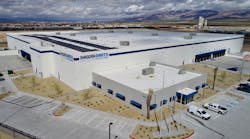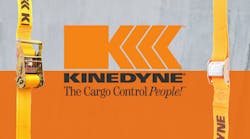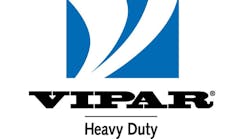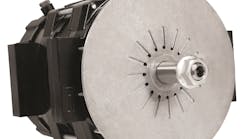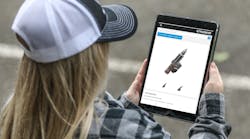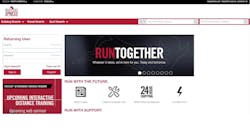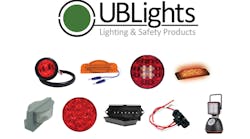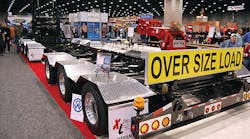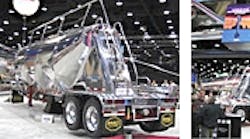Proponents of selective catalytic reduction (SCR) spoke out in defense of the process as the preferred emission control technology to meet the Environmental Protection Agency's 2010 diesel truck engine emission standards. Speakers at the SCR for 2010 CEO Summit — held during the Mid-America Trucking Show — refuted a wide range of misinformation about the emission control technology.
The SCR CEO Summit marks the official beginning of the SCR/DEF rollout for 2010 and broght together a diverse group of participants from across a new supply chain. FactsAboutSCR.com publisher Chuck Mattina, president and chief operating officer of Quixote Group, moderated the summit. Panelists included chief executive from six major truck and engine brands offering SCR technology. Panelists also included executives with a major producer of the diesel exhaust fluid (DEF) that will be used with SCR and from two major truck stop chains.
Chris Patterson, president and CEO Daimler Trucks North America (Freightliner, Western Star, and Detroit Diesel brands) opened his remarks stating “this may be the only time you see the world's three largest producers of heavy-duty diesel engines in violent agreement about anything. Our companies produce the only engines in volume production today that will still be available after the new standard comes into effect. So when we say that our engines will burn up to 5% less diesel fuel after the first of the year, we speak with authority born of experience.”
Per Carlsson, president and CEO Volvo Trucks North America said: “There are currently no production trucks — anywhere in the world — that deliver 0.5 grams of NOx with EGR only. Never mind the 0.2 gram standard that we're achieving with SCR — a standard that the competition is going to have to meet once its bank of credits is exhausted.”
Denny Slagle, president and CEO Mack Trucks Inc said, “We use EGR (exhaust gas recirculation) today. We know it puts additional stress on an engine. We know it generates a lot of heat, even at today's levels. We know it presents challenges in engine performance and fuel economy. We're managing all of this extraordinarily well today. But we've reached the limit of what can be accomplished with EGR. More is definitely not better, and there's no way around fuel economy and performance penalties. This isn't marketing — it's science, pure and simple.”
Jim Kelly, president of engine business for Cummins Inc, talked about the advantages of an SCR plus EGR solution (the generally accepted standard for SCR systems) over an “in-cylinder” or EGR-only solution for meeting EPA 2010 standards. According to Kelly, Cummins has found SCR offers lower heat rejection, higher power and torque for a given displacement, less complexity, wider operating “sweet spot,” and is the only solution that can meet 2010 emissions regulations and deliver a fuel economy improvement.
Bill Mulligan, vice-president of development, facilities & environmental for Pilot Travel Centers, reported that orders would be placed for diesel exhaust fluid (DEF) dispensing equipment in the second quarter of 2009 for 25 bulk locations to be operational in the fourth quarter of the year, followed by the addition of 25 bulk locations each succeeding quarter through the third quarter of 2010. In addition, Mulligan said all 310 Pilot truck stops will have DEF available in prepackaged containers by December 2009.
Tom O'Brien, president and CEO of TravelCenters of America/Petro Stopping Centers, showed examples of the 2.5-gallon pre-packaged containers for DEF that will be available at retail across 234 TA and Petro sites. O'Brien added that DEF will be available in bulk at key locations and available at more than 1000 service bays across the truck stop chain as well as through emergency fills delivered by over 400 RoadSquad service trucks.
Barry Lonsdale, president of Terra Environmental Technologies, said that since the CO2 capacity of diesel fuel is 10 times greater than DEF, the fuel economy delivered with SCR results in a smaller carbon footprint than the equivalent EGR solution. Lonsdale reiterated that DEF is non-hazardous according to Occupational Safey and Health Administration criteria and stable, with a shelf-life that is at least one year. He also pointed out that the American Petroleum Institute has developed a DEF certification program.
